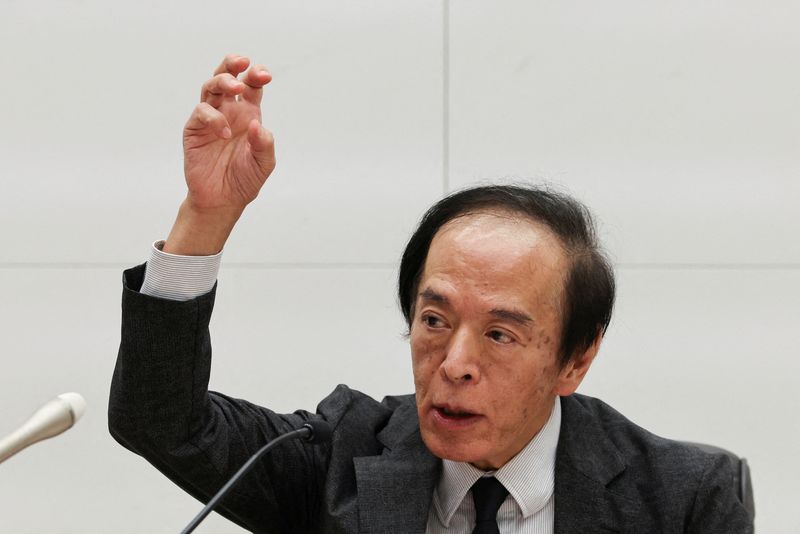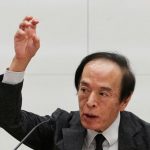(Reuters) -Japan’s central bank must be vigilant to fallout from unstable markets and global uncertainties, Bank of Japan Governor Kazuo Ueda said on Wednesday, sharpening the focus on the need to bolster economic recovery and for caution on raising rates.
Prime Minister Shigeru Ishiba on Tuesday urged the BOJ to maintain loose monetary policy, as the government strives to end economic stagnation.
The government said Ishiba and Ueda will talk later on Wednesday, which will be their first meeting since Ishiba officially became premier on Tuesday.
In a speech delivered to an annual securities industry meeting, Ueda reiterated the BOJ’s view that Japan’s economy will sustain a moderate recovery and help underlying inflation converge towards the bank’s 2% target in the coming years.
But he did not repeat the central bank’s pledge, most recently made in September, to keep raising interest rates if inflation moves in line with its target, and instead placed the focus on various risks.
“Uncertainty regarding Japan’s economy and prices remains high,” Ueda said in a speech to an annual securities industry meeting.
“The outlook for overseas economies, including that of the U.S., remains uncertain, while financial markets are still unstable,” he said. “For the time being, we will scrutinise such developments with extremely high vigilance.”
The BOJ ended negative rates in March and raised short-term borrowing costs to 0.25% in July on the view Japan was making progress towards durably achieving 2% inflation.
Ueda’s hawkish comments at the time, coupled with weak U.S. jobs data, triggered a spike in the yen and stock market rout in early August. Since then, BOJ policymakers have stressed the need to take into account the economic fallout from market volatility.
In August, Ishiba had told Reuters the BOJ was on the “right policy track” in ending negative rates and endorsed further normalisation of monetary policy, saying it could boost industrial competitiveness.
His focus on the need to get Japan permanently out of deflation underscores the new administration’s preference for the BOJ to go slow in hiking rates, analysts say.
Newly appointed economy minister, Ryosei Akazawa, said on Wednesday the government expected the BOJ to make a “careful assessment” of the economy in judging when to hike rates.

“The current Japanese policy rate, at 0.25%, is low and abnormal in global standards,” Akazawa told a news conference.
But Japan’s priority was to “pull out of deflation,” he said, adding he hoped the BOJ would be cautious about raising interest rates further.
To read the full article, Click Here

